|
Edward Du I am a master's student in Computer Science at California Polytechnic State University, San Luis Obispo, advised by Jonathan Ventura. I received my bachelor's degree in Computer Science with a minor in Data Science from California Polytechnic State University, San Luis Obispo. As an undergraduate, I worked on an object detection application for the Smithsonian Institution, a webapp for teaching intro-level statistics with Immanuel Williams, and research for next-gen avionics with John Bellardo. |

|
ResearchI'm interested in computer vision, machine learning, data science, and astronomy. Most recently, my work has focused on novel view synthesis and 3D indoor scene dataset generation, using Facebook's Replica Dataset. |
Projects |
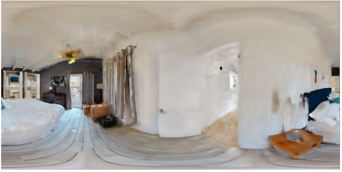 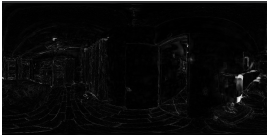
|
DeepPanoRF: Deep Prior for Neural 3D Reconstruction From Sparse Panoramas
Edward Du, Nam Nguyen, Jonathan Ventura My Culminating Master's Thesis, 2025 Cal Poly Digital Commons Page Advances in neural field representations have led to a significant improvement in view synthesis quality. However, many current novel view synthesis methods rely on a dense set of input views, which can be impractical and inefficient in real-world applications. We propose DeepPanoRF, a novel method for 360◦ scene reconstruction from a sparse set of input equirectangular panoramas. Built upon K-Planes, a radiance field representation that encodes explicit features on orthogonal feature planes, our method does not directly learn feature grids. Instead, we parameterize the feature grids to enable sparse view reconstruction without pretraining or additional regularization. We implement a custom U-Net architecture to take advantage of the encoder-decoder network and the skip connections. We evaluate our method’s effectiveness on the Habitat-Matterport 3D (HM3D) dataset, which consists of diverse, high-quality indoor environments. Our results demonstrate that DeepPanoRF outperforms K-Planes in both reconstruction quality and structural coherence when dealing with sparse input views. |
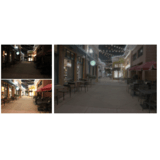 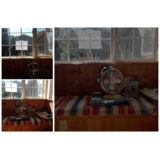
|
Instant HDR-NeRF: Fast Learning of High Dynamic Range View Synthesis With Unknown Exposure Settings
Nam Nguyen, Edward Du, Jonathan Ventura Nam's Master's Thesis, 2024 Cal Poly Digital Commons Page We propose Instant High Dynamic Range Neural Radiance Fields (Instant HDR-NeRF), a method of learning high dynamic range (HDR) view synthesis from a set of low dynamic range (LDR) views with unknown and varying exposure and white balance in as little as minutes. |
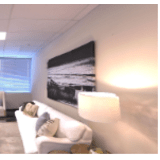 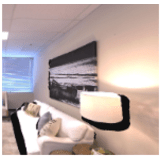
|
3D Pano Inpainting: Building a VR Environment from a Single Input Panorama
Shivam Asija, Edward Du, Nam Nguyen, Stefanie Zollman, Jonathan Ventura Adjunct Proceedings IEEE VR 2024, 2024 Project Page / Paper / Code / We introduce a pipeline capable of transforming an equirectangular panoramic RGB image into a complete 360◦ 3D virtual reality scene represented as a textured mesh, which is easily rendered on a VR headset using standard graphics rendering pipelines. |
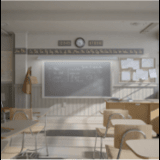 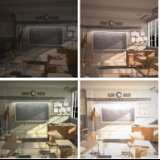
|
HDR-NeRF--: Learning High Dynamic Range View Synthesis With Unknown
Exposure Settings
Nam Nguyen, Edward Du, Jonathan Ventura CVPR XRNeRF Workshop, 2023 We enforce monotonacity on the tone mapping function and optimize exposure parameters separately for each color band to improve HDR (high dynamic range) view synthesis for datasets with unknown exposure settings. |
|
|
Machine Learning for Florida Estuary
Biodiversity Analysis: A Cal Poly Data Science
Capstone
Edward Du, Ellyce Bilhorn, Charlie Ward, William Medwid Data Science Capstone, 2023 pdf / Github We developed an object detection model and desktop application that classifies and counts the specimen in Florida Estuary benthic soil samples. |
In Progress |
|
Thank you to Jon Barron for the website template. |